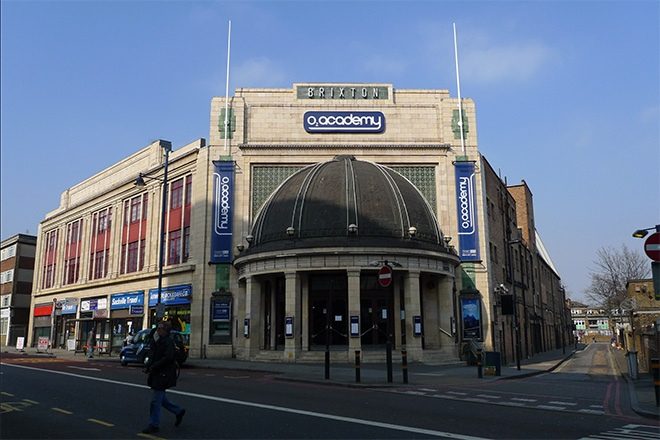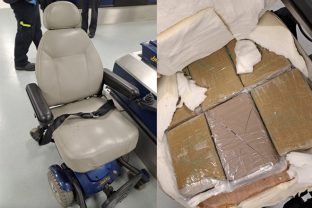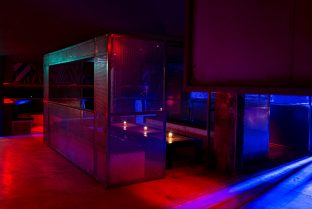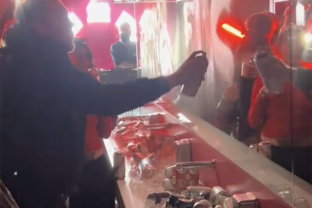Here are the 77 conditions Brixton Academy must meet to reopen
The South London venue had closed after two people died from a crowd crush outside an Asake show

Lambeth Council has published the 77 conditions that O2 Academy Brixton must meet to re-open for a series of test-events.
The popular SW9 spot closed its shutters in January this year after a crowd-crush at an Asake concert left two people dead and another in critical condition.
Rebecca Ikumelo, 33-year-old mother of two, was fatally injured during the crowd-crush when 1,000 people stormed the venue while security guard Gaby Hutchinson, 23, died from wounds sustained two days later.
Since its suspension, discussions between the venue's owner, Academy Music Group (AMG), Lambeth Council and the Met police have been ongoing, but not without conflict.
During a hearing for the south London music venue's to be reinstated earlier this month, a representative of the Met police said that the while force want Brixton Academy to remain open, it has lost confidence in the group to safely run the site.
Earlier in the year, reports suggested that the Met police had in fact wanted the space closed entirely. In response to the news, a petition with over 100,000 signatures started to save the iconic venue.
On September 15, Lambeth Council announced that the popular South London spot had made the changes necessitated from its reopening terms. The "extensive and robust" set of conditions surround police liason, risk assessment, and event management. Horatio Waller KC, on behalf of the council, said:
"We have not shied away from our duty to identify what went wrong and where responsibility lies. This is necessary to ensure lessons can be learned."
Waller insisted that the conditions were "much more comprehensive, prescriptive and controlled" than the previous system and that the tragedy at the Asake concert on December 15 would likely have not happened.
Organisations such as Music Venue Trust (MVT) and Night Time Industry Association (NTIA) have welcomed the decision, hailing the cultural importance of the venue to its neighbourhood, music fans and the wider ecosystem of live music.
Key conditions include increased security personnel, a 'Show Stop' and emergency evacuation procedure and a request to "install and maintain a comprehensive CCTV system." You can read the full conditions below:
Full set of conditions
Liaison with Police and Licensing Authority
1. The Premises Licence Holder will provide an Events List of forthcoming events including a summary of the nature of each event to the Police and Licensing Authority both three months and one month in advance.
Any change to the Events List occurring less than a month before the event will be provided within 48 hours of the information becoming known and in accordance with a Protocol agreed with the Police and Licensing Authority.
The Premises Licence Holder will arrange a meeting at least once a month and invite the Police and Licensing Authority to attend to discuss the details of forthcoming events and any specific security or safety issues or requirements.
Event Risk Assessment
2. An Event Risk Assessment shall be prepared in advance of any event at the premises which shall set out risks and control measures for each identified risk. The Event Risk Assessment shall include:
(a) the nature of the event;
(b) relevant risks;
(c) appropriate control measures. The Event Risk Assessment shall be available for inspection at the premises on
immediate request by the licensing authority and the Police during all trading hours.
The Event Risk Assessment must include the age profile of the audience in assessing
3. The Event Risk Assessment shall be available for inspection at the premises on immediate request by the licensing authority and the Police during all trading hours. The Event Risk Assessment must include the age profile of the audience in assessing the need for any increased levels of security, stewards and medical or welfare provision.
4. (a) The Event Risk Assessment shall be carried out on the form appended to this
licence (per Tab 23 in AMG’s evidence bundle served for the hearing on 11 and 12
September 2023) by the General Manager or Deputy General Manager, who shall
have received appropriate training in risk management.
(b) The risk assessment shall consist of:
i) an evaluation of each risk as set out in the form;
ii) an overall assessment of risk on the scale 1-5 as set out in the form.
iii) an assessment whether there is a significant risk of crowd disorder.
(c) Any event with an overall assessment of 3 shall be escalated to the Divisional
Manager.
The event shall not take place unless approved in writing by the Divisional Manager.
(d) Any event in which any individual risk is rated as amber (i.e. “Risk Acceptable
with Adequate Control Measures” or red (i.e. “Unacceptable Risk”) or which has an
overall assessment of 4 or 5 shall be escalated to the Group Operations Manager or
Chief Operations Officer.
The event shall not take place unless approved in writing by the Group Operations
Manager or Chief Operations Officer.
5. No event that is assessed to pose a significant risk of crowd disorder shall take place.
6. The premises license holder must, in carrying out an Event Risk Assessment, have due regard to the need to:
(a) eliminate discrmination, harassment and victimisation and any other conduct prohibited by or under the Equality Act 2010 (or superseding legislation);
(b) advance equality of opportunity between persons who share a relevant protected characteristic (as set out in the Equality ACt 2010) and persons who do not share it;
(c) foster good relations between persons who share a relevant protected
characteristic and persons who do not share it.
Risk assessments: general
7. The use of the balcony by customers including the stewarding arrangements will be subject to a suitable and sufficient specific risk assessment for any events held at the premises.
8. Risk assessments for the premises shall be carried out (and reviewed as and when new hazards are introduced into the premises). All significant hazards identified should be recorded and remedial measures/systems put in place.
9. All risk assessments applicable to the venue shall be reviewed and signed at least annually. The name and position of the signatory shall be recorded on the risk assessment.
10. All venue managers shall be trained in venue risk assessments at least annually by an independent trainer. A signed record of the training shall be held on file and produced immediately for inspection during trading hours by the London Borough of Lambeth. The record shall state the name and qualifications of the trainer, the names and job titles of those attending the training, and whether they have completed the training to the satisfaction of the trainer, and it shall be signed and dated by the trainer.
11. There shall be an annual independent audit of
(a) the adequacy of the risk assessments;
(b) the venue managers’ understanding of applicable risk assessments;
(c) The implementation at each show of the control measures identified in risk
assessments.
The audit report shall be held on file and produced immediately for inspection during trading hours by the London Borough of Lambeth.
Event Management Plan
12. An Event Management Plan shall be prepared in advance of any event at the premises, which shall take into account the Event Risk Assessment for the Premises. The Event Management Plan shall include measures for crowd safety, including but not limited to:
(a) announcements and advance messaging to customers;
(b) queuing systems;
(c) the deployment and location of barriers outside the premises to control the queue
and protect the front of the premises;
(d) queue management and control;
(e) deployment of security personnel outside the premises and in the lobby to
control ingress;
(f) the location of preliminary and final ticket inspections;
(g) procedures to ensure that the maximum capacity for the venue is not exceeded;
(h) Emergency Door Close Protocol and Procedure.
(i) ShowStopProceduresandProtocol;
(j) EmergencyEvacuationPlan.
(k) Procedures for the provision of first aiders and first aid equipment for the event
and arrangements for medical treatment, including numbers and types of medical
personnel.
The Event Management Plan shall be available for inspection on immediate request
by the licensing authority and the Police during all trading hours.
Show Stop procedure
13. The Venue Show Stop Procedure (“the Procedure) shall be amended to state that:
(a) in deciding whether to implement the Procedure the decision-maker shall take
into account the audience reaction to the announcement of the Show Stop;
(b) upon announcement of a Show Stop, SIA operatives shall clear and staff all
exits to facilitate egress from the venue;
(c) all venue staff shall be trained in the Procedure.
14. All venue hire contracts for performances at the premises shall oblige the artist to co- operate fully in the Show Stop Procedure.
Emergency evacuation procedure
15. Emergency evacuation procedures shall require that in the event of an emergency evacuation, security personnel are to be stationed at all emergency exits during a live event.
16. In the event of an emergency evacuation, security personnel must be stationed at all emergency exits. Emergency operations plan
17. The Emergency Operations Plan (“the EOP”) shall be reviewed and signed at least annually by the General Manager.
18. All venue managers shall be trained in the EOP at least annually by an independent trainer, including the response to emergency scenarios. A record of the training shall be held on file and produced immediately for inspection during trading hours by the London Borough of Lambeth. The record shall state the name and qualifications of the trainer, the names and job titles of those attending the training, and whether they have completed the training to the satisfaction of the trainer, and it shall be signed and dated by the trainer.
19. There shall be an annual independent audit of
(a) the adequacy of the EOP;
(b) the venue management’s understanding of the EOP.
The audit report shall be held on file and produced immediately for inspection during
trading hours by the London Borough of Lambeth.
Security personnel
20. All security operatives at the premises shall be provided by a contractor holding approved contractor status from the Security Industry Authority.
21. The control room shall be supervised by a Security Supervisor.
22. Ingress to the premises shall be supervised by a Security Supervisor.
23. The Security Supervisors supervising the control room and ingress shall be equipped with radio communication devices.
24. All security operatives and Security Supervisors shall be named on a register held at the premises. The register shall be available for immediate inspection by the Police or licensing authority during trading hours.
25. The Venue Duty Manager or, in his absence, the Deputy Duty Manager or next line manager, will be responsible for activating any Emergency Door Close Procedure and any Show Stop procedure, after consulting with the Head of Security. Any police officer present may also be consulted.
26. There shall be experienced security operatives deployed outside the premises and in the foyer area who wear body worn cameras. The number of body worn cameras shall be assessed as part of the Event Risk Assessment.
27. The minimum number of SIA licensed security on duty at the premises at all times the premises is open for licensable activities shall be risk assessed for each event subject to an absolute minimum of 1 x SIA licensed security per 100 customers.
28. Stewards employed at the premises must be over 18 years of age and wear distinctive clothing so as to be easily identified as stewards.
29. Registered door supervisors shall be provided to carry out searches on persons and to exclude those who may be carrying illegal drugs or offensive weapons.
30. Door supervisors shall be provided to the licensed premises to maintain orderly queuing outside of the premises.
31. Door supervisors working at the licensed premises shall display their names badges on their outer most clothing, such that it is visible to the public and can be easily verified.
Ingress
32. The system for ingress shall be protected by barriers as shown in Showsec Method Statement, External Operations dated 5th July 2023.
33. Barriers may not be placed in the highway without the consent of the relevant highway authority or the written confirmation of the said highway authority that it does not require the premises licence holder to apply for such consent.
34. The venue shall not re-open until SC-610 tannoys have been installed onto the
external elevations of the building arranged and positioned in accordance with
elevation plans 3676-003 C and 3676-004.
External tannoys are not to be used except in the event of an emergency.
35. The venue shall not re-open until cantilever external lighting, of the type specified in drawing 3654-002, has been installed on the building, arranged and positioned in accordance with drawing 3654-002. The external cantilever lighting shall be installed at 4m above ground level and be directed downwards as provided in drawing 3654-002, so that light does not spill onto neighbouring residential properties.
36. The external tannoys and lighting must be periodically checked to ensure they are in good working order.
37. The installation of external tannoys and lighting must be carried out in accordance with any necessary lawful authorisation (including planning permission and listed building consent).
38. There shall be an independent audit of the premises’ queuing and ingress procedures at least every six months. The audit shall include crowd safety, security and unauthorised or fraudulent entry. The auditor’s report shall be provided to the licensing authority or the Police immediately upon request during trading hours.
Ticket inspections
39. All final ticket inspections at the premises shall be carried out by authorised employees of the premises licence holders.
40. In order to avoid crowding around the front doors of the premises, the crowd safety
measures in the Event Safety Management Plan shall be such as to ensure that:
(a) the final ticket inspection takes place away from the front doors of the premises;
(b) the area in front of the doors may only be accessed by those whose tickets have
been subject to final inspection;
(c) the area in front of the doors is adequately protected by barriers and security
personnel.
Capacity
41. The number of persons accommodated at any one time shall not exceed the following: - Balcony -1083 persons Balcony Seating Area, Balcony Rear Standing 78 persons VIP Bar 150 persons, Ground Floor with folding partition in use 3540 persons. Ground Floor with folding partition between Ra Bar and Auditorium locked in the open position 3760 persons. The total accommodation for the premises shall not exceed 5071 persons.
42. The Premises Licence Holder will have a procedure in place for dealing with “unsafe crowd concentration.” A record of this policy shall be maintained on site and shall from part of the Event Management Plan.
43. A manual or electronic system of counting in visitors to events on the premises shall be implemented and maintained.
44. The maximum occupancy figure shall be clearly displayed at the point of entry along with all relevant licences and insurance documentation.
45. The premises shall have a procedure in place to ensure that the maximum occupancy capacity is not exceeded on all events.
46. Tickets will be issued for the ground floor or the balcony. Stewards will be so positioned at the ground floor auditorium doors and the balcony seating doors as to ensure that customers may only enter the area for which they hold a ticket.
CCTV
47. The premises licence holder shall install and maintain a comprehensive CCTV system. The CCTV system shall continually record whilst the premises are open. All recordings shall be stored for a minimum period of 30 days with date and time stamping. Viewing of recordings shall be made available upon the request of Police or authorised officer of Lambeth Council subject to and in accordance with Data Protection legislation.
48. A suitably trained and licensed individual in the management team who is able to operate the CCTV system shall be in the premises at all times when it is open for licensable activities. The individual must be able to provide a Police or authorised Council officer copies of recent CCTV images or data with the absolute minimum of delay when requested in accordance with Condition 9a).
49. Any CCTV breakdown or system failure will be remedied as soon as reasonably practicable. Repair records / invoices shall be kept on site for at least 12 months and be readily available to be viewed by all authorised persons upon request.
Public safety
50. All digital tickets for events at the premises shall be accompanied with online information which includes a link to the terms and conditions, important messaging for arrival, entry and egress and the venue’s neighbour friendly policy.
51. When the premises is open to the public, at least one employee shall be on duty who has practical experience in fire prevention and extinction. Such employees shall act as fire-fighters and wear fire-fighters uniform.
52. A public address system, in addition to that used by the performers, shall be provided. Both systems shall be under the direct control of the licensee so that broadcast messages can over-ride the performers amplifiers and be clearly audible.
53. A fully equipped first aid point staffed by adequate numbers of first aiders shall be maintained for the duration of the event. [Existing condition 6]
54. Drinks and refreshments shall only be supplied in plastic or paper containers.
55. Patrons must not be allowed to sit on stairs or otherwise block exits or exit ways during the event. Stewards shall patrol the premises during an event to ensure compliance with this requirement.
Prevention of nuisance
56. The secondary lobbies to all final exit doors to street are to be maintained to reduce noise leakage to the immediate environment.
57. All exit doors to the premises are to be stewarded by security personnel during an event to ensure that customers to the premises do not accidentally open doors when live sound source is taking place.
58. The premises licence holder or club official shall ensure that prominent, clear and legible notices are displayed at all exits requiring customers to respect the needs of local residents and to leave the area quietly.
59. The premises licence holder will encourage customers to use public transport or taxi services and leave the premises promptly when the event finishes.
60. The clearance of equipment and the loading into vehicles shall be completed not later than one hour and a half after the end of the event.
61. The deliveries of liquor to the premises shall take place between 09:00 and 18:00.
62. The premises shall have a procedure in place to ensure that the immediate vicinity of the premises (including pathways to and from the premises) are cleared up.
63. The premises shall maintain its active policy against flyposting and its contract of hire specifically precluding such activity.
64. A direct telephone number for a member of management at the premises shall be publicly available at all times the premises is open. This telephone number is to be made available to residents and businesses in the vicinity.
65. The Premises Licence Holder shall organise and participate in a meeting for local residents to discuss the operation of the premises at least once every six months.
Prevention of crime and disorder
66. All front of house staff shall undergo welfare and vulnerability engagement training at least annually. A record of such training shall be kept on the premises for immediate inspection by the licensing authority and Police during all trading hours.
67. The premises shall participate in any local pubwatch scheme.
68. The premises shall operate a zero-tolerance policy to the supply and use of drugs.
69. The premises shall operate a staffed cloakroom operated via a secure ticketing system.
70. The restrictions inherent in the Licensing Act 2003 will apply at all times within the premises.
Works conditions
71. No licensable activities shall take place at the premises until the works to strengthen the front doors of the venue as identified in the Report from William J Marshall dated 9th August 2023 have been satisfactorily completed and a certificate of completion following an inspection by William J Marshall or other suitably qualified structural engineers has been provided to the licensing authority.
72. The premises licence holder will carry out a Health and Safety Audit of the premises to be undertaken by an independent and suitably qualified Health and Safety Consultant. The Audit shall be provided to the Licensing Authority and the Health and Safety Officer of Lambeth Council and no licensable activities shall take place at the premises until the Audit has been confirmed by them as satisfactory.
Health and Safety Committee
73. The premises licence holder’s Health and Safety Committee shall be chaired by an independent person with expertise in health and safety governance.
74. The terms of reference for the Health and Safety Committee shall include the Protect Duty, Crowd Management and Safety, and event risk assessment.
75. The minutes of all Health and Safety Committee meetings shall be placed before the Board of the Premises Licence Holder.
Off sales/Bottles
76. No customers carrying open or sealed bottles shall be admitted to the premises at any time that the premises are open to the public.
77. No off sale of alcohol shall take place within the premises.
Tibor Heskett is Mixmag's Digital Intern, follow him on Twitter

Mixmag will use the information you provide to send you the Mixmag newsletter using Mailchimp as our marketing platform. You can change your mind at any time by clicking the unsubscribe link in the footer of any email you receive from us. By clicking sign me up you agree that we may process your information in accordance with our privacy policy. Learn more about Mailchimp's privacy practices here.

 Daft Punk announce ABBA-style ‘Voyager’ hologram arena in Paris
Daft Punk announce ABBA-style ‘Voyager’ hologram arena in Paris


















